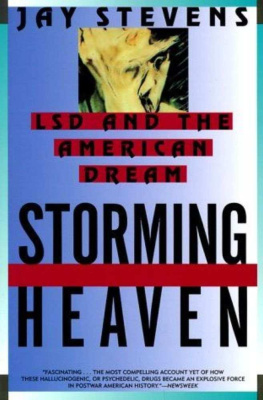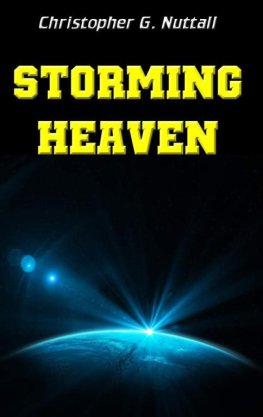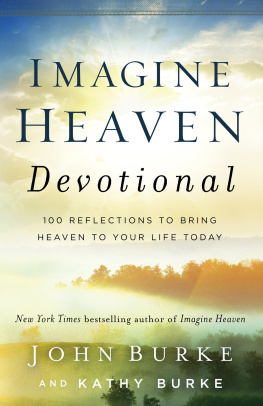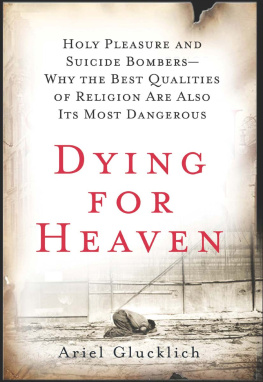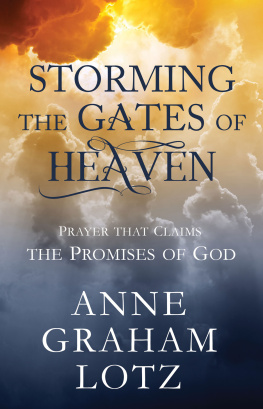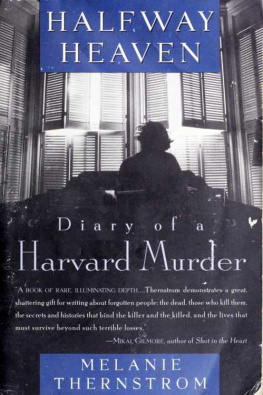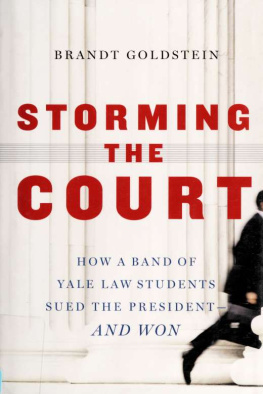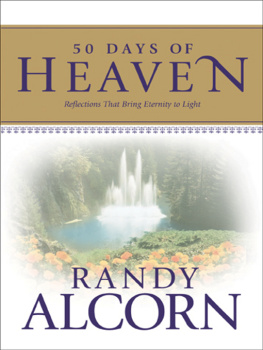Jay Stevens - Storming Heaven: LSD and the American Dream
Here you can read online Jay Stevens - Storming Heaven: LSD and the American Dream full text of the book (entire story) in english for free. Download pdf and epub, get meaning, cover and reviews about this ebook. City: New York, year: 1995, publisher: Harper & Row;Grove Press, genre: Detective and thriller. Description of the work, (preface) as well as reviews are available. Best literature library LitArk.com created for fans of good reading and offers a wide selection of genres:
Romance novel
Science fiction
Adventure
Detective
Science
History
Home and family
Prose
Art
Politics
Computer
Non-fiction
Religion
Business
Children
Humor
Choose a favorite category and find really read worthwhile books. Enjoy immersion in the world of imagination, feel the emotions of the characters or learn something new for yourself, make an fascinating discovery.
- Book:Storming Heaven: LSD and the American Dream
- Author:
- Publisher:Harper & Row;Grove Press
- Genre:
- Year:1995
- City:New York
- Rating:4 / 5
- Favourites:Add to favourites
- Your mark:
- 80
- 1
- 2
- 3
- 4
- 5
Storming Heaven: LSD and the American Dream: summary, description and annotation
We offer to read an annotation, description, summary or preface (depends on what the author of the book "Storming Heaven: LSD and the American Dream" wrote himself). If you haven't found the necessary information about the book — write in the comments, we will try to find it.
Storming Heaven digs beneath the headlines to bring an amazing science story in which Harvard professors become holy men, and a generation drops out to seek cosmic bliss--only to find something much darker.
**
Storming Heaven: LSD and the American Dream — read online for free the complete book (whole text) full work
Below is the text of the book, divided by pages. System saving the place of the last page read, allows you to conveniently read the book "Storming Heaven: LSD and the American Dream" online for free, without having to search again every time where you left off. Put a bookmark, and you can go to the page where you finished reading at any time.
Font size:
Interval:
Bookmark:
Author: Jay Stevens Publisher: Perennial Library Date: 1988
ISBN: 0-06097-172-X
Endnote Errors : no trek through virgin jungle " Yage Letters, pp. 28-29. and he shook a little broom " Yage. pp. 28-29. and I have always based my life ..." FB, p. 64. cannot be located in original text.
During the night the rain and fog moved inland; by morning the air was sharp and clear. From the top of Nob Hill you could see the houseboats of Sausalito; Marin, in the distance, was a hazy shimmer.
It was going to be hot, going to be one of those fine winter days when the mercury suddenly climbs and for a few hours San Francisco becomes tropical, the golf links jammed with hackers, the Bay crowded with boats; the perfect sort of day to load the kids into the car and drive to San Simeon, to finally visit Randolph Hearst's baronial whim; the perfect sort of day to dig out last summer's bathing suit and catch a few rays, which was what the students at San Francisco State were doing.
It was January 14, 1967, a Saturday, and in parts of the Bay area elements from another, less integrated America, were also making plans: there was going to be a party in the park today, a curious affair with an extravagant name, A Gathering of the Tribes for the First Human Be-In .
The park was Golden Gate Park, one of those imperial parks built in the closing decades of the last century, with something for everyone, museums, lakes, bicycle paths, fly casting pools, a buffalo paddock with a herd of sleepy bison, a Japanese garden. On a sparkling Saturday like this, the Golden Gate should have resembled a twentieth-century version of George Seurat's epic painting, La Grande Jatte , but something had happened in the past few months to alter the ambiance. Just up the street, a short stroll away, was HaightAshbury, the home of the hippies, and the hippies, unencumbered by the Protestant work ethic, were treating the park as though it was their own special backyard.
They were everywhere, panhandling, singing, performing little existential playlets that were incomprehensible to everyone but themselves. They'd turned a nondescript slope near the tennis court into a perpetual love-in, although in these innocent days the form still lacked a name: what you saw, between serve and volley, was a shifting accumulation ofwhat? A European, registering the carnival costumes and the cheerful, almost dignified selfabsorption of their wearers, might have credited the hippies with being another branch of the gypsy tribes of Romany. And in many of the externals they would have been correct. But in actual fact the bodies lolling on the grass next to the Golden Gate's tennis courts belonged to the educated sons and daughters of white middle-class America. They had, to use their own terminology, dropped out. In the stubborn fashion of children, they wanted nothing to do with the adult culture. That's what the Gathering of the Tribes was all about: it was a celebration of this rejection, and a partial first step toward building an alternative.
Although the possibility of the Be-In had been floating around the Haight-Ashbury for months, it was only in the last couple of weeks that the concept had jelled and notices had been sent to the local press announcing that an epochal moment was about to occur. "Would you believe Timothy Leary and Mario Savio?" enthused the hippies' favorite newspaper, the San Francisco Oracle .
Allen Ginsberg and Jack Weinberg? Lao Tzu and Spartacus? Berkeley's political activists are going to join San Francisco's hippies in a love feast that will, hopefully, wipe out the last remnants of mutual skepticism and suspicion.1
Which was echoed in even more ecstatic strophes by the Berkeley Barb , the preferred read of the activists:
When the Berkeley political activists and the love generation of the HaightAshbury and thousands of young men and women from every state of the nation embrace at the gathering of the tribes for a Human Be-In at the Polo Field in Golden Gate Park, the spiritual revolution will be manifest and proven. In unity we shall shower the country with waves of ecstasy and purification. Fear will be washed away; ignorance will be exposed to sunlight; profits and empire will lie drying on deserted beaches .2
Added to this were thousands of posters one showing a bearded Hindu sadhu gazing beatifically out at the observer, another featuring a Plains Indian cradling a guitar instead of a riflethat blotted out the usual screeds advertising rock acts at the Fillmore.
More than a few respectable citizens must have contemplated that gnomic a gathering of the tribes and wondered, with a twinge of unease, what in hell was going on in their fair city.
It sounded like something the Indians might have held before riding off to massacre Custer.What in hell ? was a question a lot of Americans were asking in the first perplexing months of 1967. Unlike other periods of national crisis, the economy was healthy; the GNP, up a third in the first five years of the decade, was climbing steadily, and Wall Street was in the initial stages of what would later be called the Go Go Years. Conglomerate was a word on every broker's lips, as was synergy . Aside from some racial strife and, a bit of dissension over our Indochina policy, we were also in good shape domestically. The New Frontier had segued into the Great Society without appreciable loss of momentum. In fact, LBJ, with years of legislative chits to draw on, was proving a far better salesman than JFK had ever been. Among liberal intellectuals it was generally believed that we were becoming a classless society, perhaps the first in history, material abundance having rendered the Marxist critique obsolete. In Political Man , Seymour Martin Lipset had magisterially declared that "the triumph of the West ends domestic politics for those intellectuals who must have ideologies or Utopias to motivate them to political activities."3
Yet, seemingly at the very moment of triumph of realizing what Robert Frost, in his 1960 inaugural poem, had called an Augustan Agethe whole thrust of our national purpose was being denounced and rejected in language that had gotten Lenny Bruce jailed just five years earlier. And this critique wasn't coming from the International Communist conspiracy or the John Birch right wing or any of a dozen familiar ideological groupsit came from those adorable adolescents who spent over $10 billion a year on consumer products, and of whom Clark Kerr, the Chancellor of the University of California at Berkeley, had once said: "The employers will love this generation . They are going to be easy to handle."
American Teenagers: one moment they were playing baseball and attending sock hops and the next they were racing down the Negro streets at dawn, screaming, hysterical, naked, or at least that's the way it seemed.
Even as late as 1965, had you suggested that America's well-heeled young might rise up and attempt to pull down the Republic, you would've been laughed from the room. Time , in January of that year, found a generation of conformists: "almost everywhere boys dress in madras shirts and chinos, or perhaps green Levis. All trim and neat. The standard for girls is sweaters and skirts dyed to match, or shirtwaists and jumpers plus blazers, Weejun loafers and knee socks or stockings."4 When a young Harvard psychologist named Kenneth Kenniston came to write about these kids, he painted a portrait of rudderless teens adrift in a world of material abundance and spiritual poverty. Kenniston called his book The Uncommitted . Three years later, his thesis in ruins, he would rush back into print with The Young Radicals: Notes on Committed Youth .
A lot of writers, forced to contemplate the noisy confusion that has since coalesced in the phrase the Sixties , turned to a poem by the Irish poet William Butler Yeats, which contained these evocative lines:
Font size:
Interval:
Bookmark:
Similar books «Storming Heaven: LSD and the American Dream»
Look at similar books to Storming Heaven: LSD and the American Dream. We have selected literature similar in name and meaning in the hope of providing readers with more options to find new, interesting, not yet read works.
Discussion, reviews of the book Storming Heaven: LSD and the American Dream and just readers' own opinions. Leave your comments, write what you think about the work, its meaning or the main characters. Specify what exactly you liked and what you didn't like, and why you think so.

